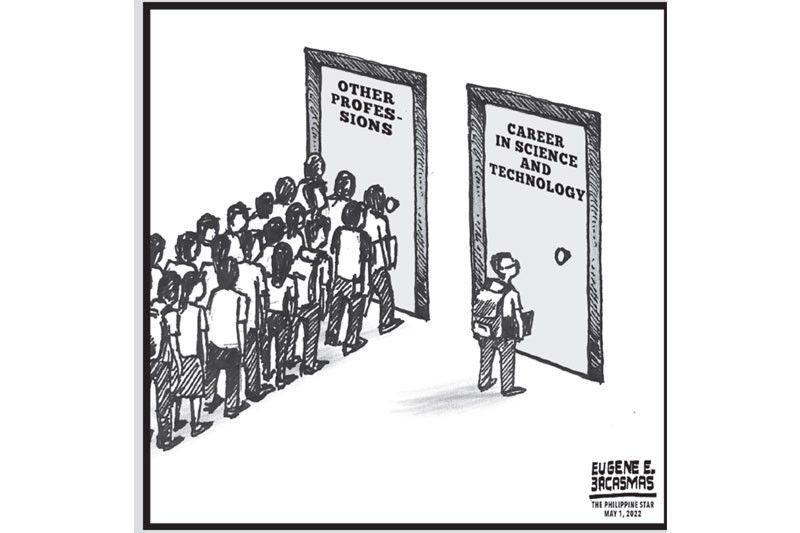EDITORIAL - Wanted: More scientists

Highly competitive countries invest heavily in innovation and encourage their youths to pursue careers in science and technology. In the past decades, however, enrollment in S&T courses in the Philippines has been underwhelming. This could be due to the weakness of basic education in science and mathematics – a problem that the government began seriously addressing only in recent years.
A related problem has been highlighted in a study prepared by the Department of Science and Technology’s Science Education Institute. The DOST-SEI study, which used data collected from 1990 to 2015 by the Philippine Statistics Authority, showed that most graduates of S&T courses ended up in non-S&T jobs, or work outside their field of study.
The data from the Women in Science study showed that only 3.7 million of 10 million holders of bachelor’s degrees were S&T graduates. And out of the 3.7 million, only 24 percent engaged in S&T occupations or activities. A significant number, mostly in healthcare such as nurses, worked overseas. The top three occupational clusters in the country for S&T are nursing and midwifery, engineering and related fields, and other health professions.
The DOST is proposing more scholarship slots for less popular S&T fields, including physics, chemistry, mathematics and statistics. In this age of pervasive disinformation using social media, emphasis should also be given on promoting courses related to digital technology.
In the globalized economy, innovation plays a critical role in national competitiveness. If the government wants to nurture a culture of scientific and technological innovation, however, interest in S&T must be nurtured from a young age. The nation needs teachers with sufficient training not only in imparting knowledge on S&T but also in inspiring sustained interest in the fields of S&T and mathematics.
Innovation requires not only education but also an ecosystem that nurtures S&T. Scientists need access to funding, facilities, knowledge and ease in securing patents as well as assistance in production and marketing to make S&T enterprises profitable. Research and development can take years and require considerable funds and other resources.
In the COVID pandemic, virus testing received a significant boost from the RT-PCR swab test developed by a local company, Manila HealthTek Inc., headed by Filipino microbiologist and infectious disease doctor Raul Destura. S&T has a significant impact on many other aspects of life, and governments that invest in it always reap rich rewards.
- Latest
- Trending





























